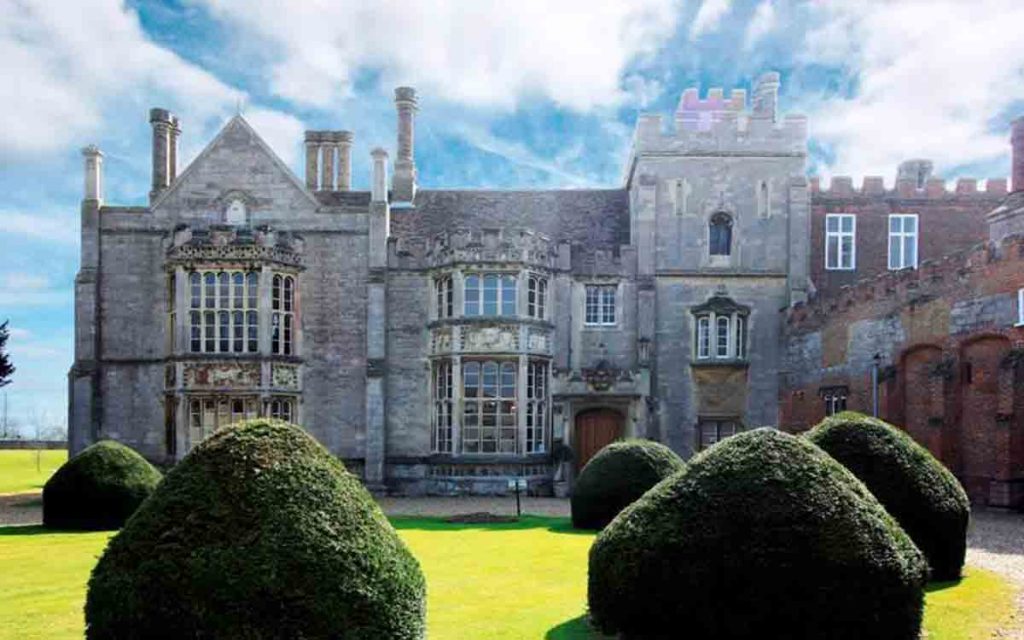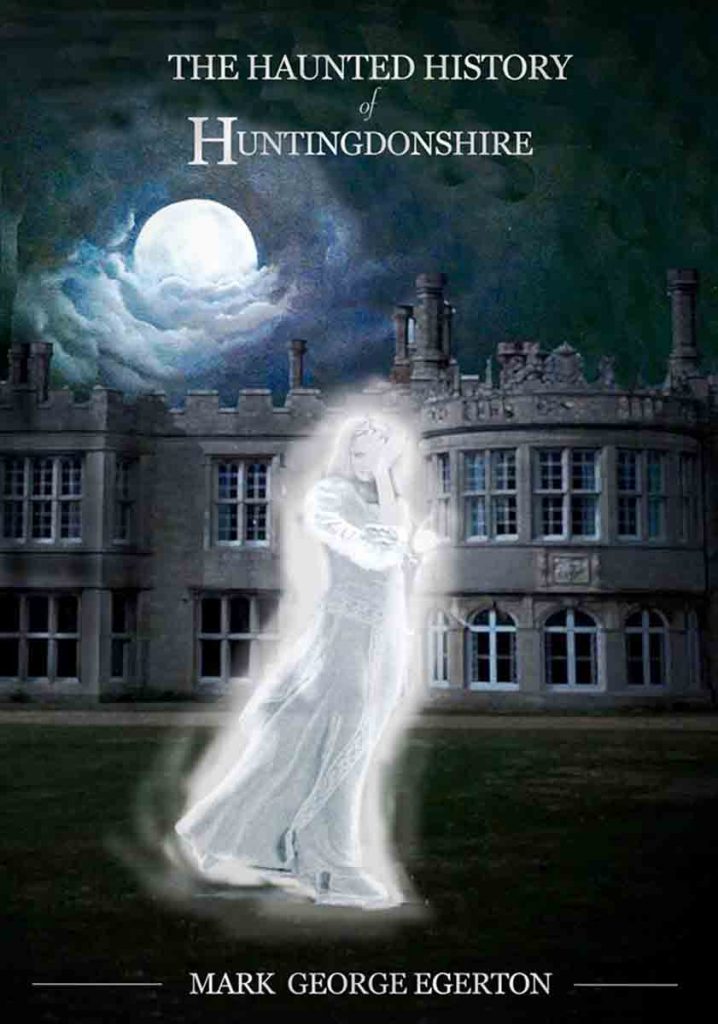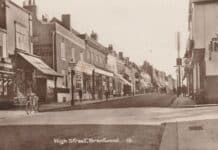Guest writer MARK EGERTON tells us about the ghosts of Hinchingbrooke House in Huntingdon, Cambridgeshire

Hinchingbrooke House started life as an 11th century wooden church. This church became dilapidated and permission was granted for it to be converted into a Benedictine priory. So a priory was then built and it remained here until 1536, when King Henry VIII made his decision to dissolve all the monasteries. In 1538, King Henry granted the house and estate to Sir Richard Williams (aka Cromwell), for a grand fee of around £19.00. The Cromwells then began the task of converting the priory into a beautiful Tudor country house. The Cromwell’s remained at Hinchingbrooke until 1627, when they then ran out of money. This was largely due to lavishly entertaining King James I, who enjoyed the local hunting and was a frequent visitor to Hinchingbrooke.
So in 1627 the house was purchased by the up and coming Montagu family. In 1660 the Montagus were granted an Earldom, and they then became known by their titled name of “Earl of Sandwich”. There were nine Montagu Earls who resided here at Hinchingbrooke, until they too ran out of money. As a result in the early 1960’s the Montagu family were forced to sell the house and estate. Hinchingbrooke was then purchased by Huntingdon District Council. In 1970 the house opened as a school and the estate is now comprised of a police headquarters, Hinchingbrooke Hospital and a public country park.
Hauntings of Hinchingbrooke House
As for the ghosts, the old house is said to have many. As someone who was educated at Hinchingbrooke, I first became aware of the various reports and stories during the late 1970s. Apparitions of Nuns have frequently been reported here, always at the rear of the property. This is the area which still contains remnants and features from the old priory. The most common location for sightings tends to be the Grand Staircase. Interestingly, most witnesses report only seeing the Nun(s) from the knees upwards. I believe that there could be a historical reason for this. In January 1830 there was a huge fire which completely destroyed the original staircase. A very similar (age and shape), replacement was sourced from a house in the south of England. If this replacement was not quite aligned with the original, I believe it could provide answers as to why so many witnesses report only seeing the Nun(s) from the knees up. If these spectres do still walk the original staircase, then their lower legs would not be visible. Also linked to this staircase are two ancient skeletons that were unearthed beneath it in 1834. These skeletons still remain and they are believed to be from the 11th century. We know they are male and female, but their identities remain unknown.
When the house was sold to Huntingdon District Council during the early 1960’s it had fallen into a poor state of repair. The council employed master masons Rattee & Kett from Cambridge to undertake the restorations and repairs. Their workmen soon noticed that their tools were constantly being moved around during the night, even though the building was empty and was kept locked. One of the workmen volunteered to spend the night inside the house in order to investigate. Apparently he awoke during the early hours to the sight of a ghostly monk standing over him. He fled the house in absolute terror and after hearing of his ordeal the Foreman refused to ever enter that particular room again!

Perhaps the most interesting ghost of all though, is the famous “White Lady”, who features on my books front cover. She is generally witnessed within the grounds or near the bordering walls. Some very detailed sightings of her have been reported, and the descriptions of this phantom have remained constant. She is said to be an exceedingly beautiful young woman, but she appears to be deeply upset (tearful). However, the most distinguishing thing about her (according to reports), is that she appears to radiate light and it is said that she actually glows! Although many of these reports are highly detailed, the women’s identity still remains a complete mystery. When I wrote “The Haunted History of Huntingdonshire” I fully researched the house and its previous occupants to see if I could find any clues to identify this woman who features on my books front cover. I certainly cannot prove anything, but I think she could possibly be Martha Ray, mistress of John Montagu the 4th Earl of Sandwich. Martha was brutally murdered on the steps of Covent Garden Opera House on the 7th April 1779.
Author MARK EGERTON saw a ghost when he was teenager and he hasn’t seen one since. But that hasn’t deterred him from a life of investigating the paranormal in the towns and villages of the historic county of Huntingdonshire, near Cambridge. Mark’s The Haunted History of Huntingdonshire is the result of his life-long passion to write a book about the county which became extinct with boundary changes in the 1970s. Buy The Haunted History of Huntingdonshire on Amazon: https://amzn.to/31tRJLY







